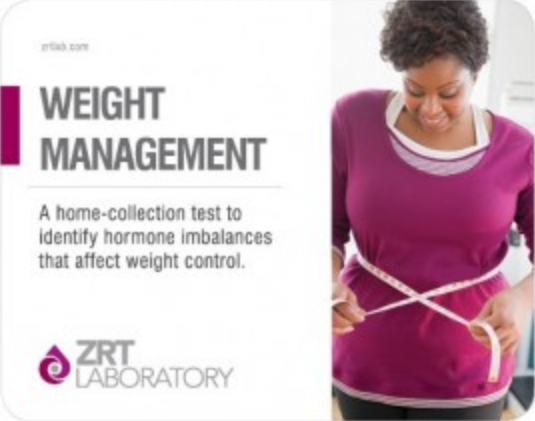
Hormone Testing Can Take the Guesswork out of Weight Management
The cumulative impact that the environment is having on our hormonal systems, from childhood into maturity, is showing up as weight management resistance.
A greater number of people in their twenties and thirties are expressing serious concerns over how sluggishly their bodies are responding to lifestyle change, so you may be feeling tired and frustrated if you are not getting the results you would like from your daily diet and exercise program.
An undetected hormone imbalance can defeat your best efforts to maintaining a healthy weight.
Environmental Stressors on our Hormones Affect Weight
Every age group is being negatively impacted by hormone imbalance, showing up as an inability to manage our weight.
- Youth, exposed to excess sugar and processed foods through many years in their childhood, are exhibiting hormonal imbalance by their early 20s, resulting in many hormone-related disorders.

- Nearly 20% of male adolescents and young adults are showing a decline in testosterone. Lower testosterone, once only affecting men over forty, is now starting to create weight loss resistance in men under the age of 25. (1)
- Exposure to environmental toxicity, present everywhere in consumer products, is wreaking havoc on hormonal balance. A greater number of people are experiencing male impotence, infertility problems, heart disease, and an uptick in insulin resistance and therefore diabetes type 2.
- Hypothyroidism is 80% more prevalent in women. Weight management is easily disrupted by stressed out adrenals or an imbalance in the thyroid, insulin resistance, vitamin D deficiency, and estrogen dominance.
- Already overtaxed by modern lifestyles, the endocrine system is too distressed to respond to emergency situations and random life events, including major surgeries, giving birth, or being put on long-term prescriptions. Recovery time is lengthened and inhibited.
Testing Your Weight-Related Hormones
Dieting is not working as it has done in the past. The lifetime assault on our hormones from artificial foods, environmental toxins, and synthetic chemicals is showing up as an array of medical conditions.
Pregnancy becomes a more taxing demand on the hormonal system, from conception through the second year of infancy. Women are now struggling with weight loss long after giving birth. Being put on addictive prescriptions after major surgeries, or any medical condition is another hit on the hormonal system.
Advances in medical laboratory technologies now allow us to peer deep within our body processes. We can analyze the specific hormones regulating weight, metabolism, blood sugar, insulin, and when and where the body stores fat.
Your Weight Management Hormone Testing Plan
When you know you have done everything you can to manage your weight—yet nothing has worked—it is time to consider testing the hormones directly related to weight management.
Weight Management Hormone Test Panel can be selected by CORE, THYROID, CARDIO, THYROID+CARDIO.
- Step 1: Start by selecting the right weight management hormone test panel, using the guide below.
- Step 2: Take the test to establish the starting hormone baseline at the onset of your plan. Consider developing your plan alongside:
- a licensed health care provider for medical conditions, especially for severe "out of normal range" results
- or a health care consultant for nutrition and supplements that will support your results
- Step 3: Develop a plan based on your hormone test results, establishing a one-year or more outlook.
- Be diligent to address the factors you can, such as work stress, poor diet, lack of exercise.
- Keep logs of your intakes, and daily routines related to your hormone test results.
- Step 4: After a year or more of actively working your plan, take the same test again to determine your progress.
 See our Weight Management Hormone Test Panels to check your hormone levels related to weight management. Samples from blood spot and saliva.
See our Weight Management Hormone Test Panels to check your hormone levels related to weight management. Samples from blood spot and saliva.
Weight Management Hormone Test Panel
Canary Club offers four combination panels to help you to assess your hormones related to weight management.
- 13 Tests—CORE Panel: Thyroid Stimulating Hormone (TSH), Vitamin D (D2 & D3), Insulin, Hemoglobin (HbA1c), Estradiol (E2), Progesterone, Testosterone, Adrenal hormones: DHEA-S, Diurnal 4x Cortisol
- 16 Tests—CORE + THYROID Panel: CORE Panel plus fT3, fT4, TPO
- 19 Tests—CORE + CARDIO Panel: CORE Panel plus High sensitive C-Reactive Protein (hs-CRP), Triglycerides, Cholesterols including LDL, VLDL, HDL and Total
- 22 Tests—CORE + THYROID + CARDIO Panel: Fully comprehensive panel test for everything related to weight management
(1). https://www.health.harvard.edu/mens-health/obesity-unhealthy-and-unmanly

